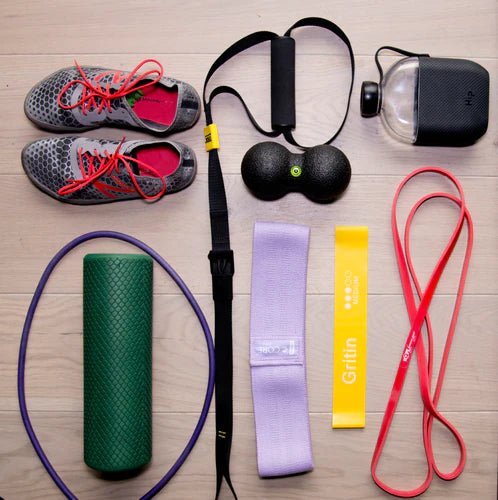You don’t need to be travelling to a third world country to upset your insides, even a trip to a country a few hours away can upend your system if you are eating foods that are foreign to your system. “Few activities are more disruptive to your body than travel,” says Ara Katz who is the Co-founder and Co-CEO of Seed which is a new state of the art synbiotic supplement (containing pro and prebiotics together). “Large and sudden shifts in diet can alter the composition of your microbiome in as little as 24 hours,” she says. “Even small microbial tweaks, like introducing a new herb or spice or something else you are not used to, can result in noticeable delays in the transit time of food through the bowels.”
It’s not just the food you eat that will upset your insides, if you’re travelling further afield to somewhere that might cause jetlag this, too can be very disruptive for your body. Ara says, “Jet lag occurs when your body’s circadian rhythms are disturbed which can also impact the microbiome. Not many people know that your microbes have circadian clocks, just like you, which, when out of sync, can cause issues from reduced gut barrier integrity to a suppressed immune response.”
Gabriela Peacock a London-based nutritionist concurs, “Different bacterial populations fluctuate through the sleep/wake pattern, and so the microbial metabolites that can impact our own circadian rhythms. By disrupting our Microbiotas clock, this could lead to foods being differentially digested and gastrointestinal problems.”
So how can we support our guts on the go?
If you want to feel your best when you’re travelling, it’s hugely important that when you pack your passport and your toothbrush that you spare a minute for your microbial community too. If you are there for long enough, Gabriella suggests trying to gradually adjust your eating times to line up with your new time zone, a little each day. She also recommends undertaking a fast while crossing time zones in the air and for a period of time in your new destination, roughly 24hours in total (she stresses the importance of drinking plenty of fluids such as water and herbal tea throughout). “If you do feel you need to have something whilst travelling,” she says, “Avoid salt-laden, sugar-rich plane meals and try taking your own high protein small snack/meal with you to have at a time that would be ‘normal’ meal time in the time zone you have just left.”

Should I take probiotics?
If you are worried about feeling unwell when abroad, or you’re heading somewhere that requires a lot of transport away from usual facilities, then Gabriella suggests taking a probiotic. “Fortunately, most travel-related disruptions to the microbiome will resolve themselves shortly after returning home. However, they can cause a lot of discomfort and hassle while you’re still on the road,” says Ara, which is where taking her Seed Daily Synbiotic can help.
What is the difference between a synbiotic and probiotic?
A probiotic contains ‘good’ bacteria that help our microbiome to work at its optimum. A prebiotic are particular foods that help the probiotics to thrive. Together they make a synbiotic.
How do probiotics work?
As transient microbes, probiotics travel through your colon, interacting with your immune cells, gut cells, dietary nutrients, and resident bacteria to directly and indirectly deliver benefits. Ara explains that it’s important to take your probiotic daily—like anything you ingest, they don’t stick around for very long. Seed, she explains, is a synbiotic that has been created with the help of scientists, doctors, innovators and entrepreneurs and it meets a new standard in efficacy and education.
“One of the primary roles of the microbiome is something called ‘colonization resistance’,” She explains, “Think of your microbes as a kind of ‘neighborhood watch’ program. They actively patrol all the major ecosystems in your body, day and night. These protective microbes can block pathogens from attaching to the lining in your gut, your airways, your skin or urogenital tract. They can block access to food, and can starve any pathogens at the site of the invasion. They can even produce toxins that inhibit certain invading pathogens. The more diverse and well-balanced your microbiome is, the more effective your body will be at colonization resistance.” In basic terms, a good probiotic helps prevent bad bacteria from taking up residence in your gut.
That being said, Ara warns that no probiotic or synbiotic will be a silver bullet in illness prevention, at home or abroad and she stresses the importance of taking additional protective measures such as travel immunizations, antimalarial medications, and using good old-fashioned common sense.
How should we take probiotics?
One of the popular misconceptions people have about probiotics Ara explains, is that they need to ‘colonize’ you in order to be effective. In reality, the vast majority of probiotics don’t contain enough new bacteria to alter the composition of your microbiome. Even if they did, we still don’t know enough about the safety of introducing colonizing microbes.
Probiotics don’t hang around for long in your system so you need to take them daily if you want results. If you’re only planning to take a probiotic or synbiotic while you’re on the road, Ara recommends starting your ‘course’ a few days, or even a week, before your trip begins. That way, your body can acclimate to the presence of these new visiting microbes.
How do you choose a good probiotic?
Ara explains that many ‘probiotic’ products don’t do what they say on the tin. Many, she says are not actually probiotics, scientifically speaking. “In order to meet the scientific definition of a probiotic, the formulation must reflect the specific quantities and strains that have been studied in a clinical trial, and be proven to deliver specific benefits,” she says.
When you are buying a probiotic she suggests seeking out the scientific research of the brand (this also applies to probiotic supplements, yoghurts and kombucha). If it doesn’t exist, or if there isn’t enough information to find out (watch out for probiotics that only list the species of bacteria), then there’s a good chance it doesn’t meet the definition of ‘probiotic.’
Finally, she says, it’s essential that the microorganisms inside the probiotic are actually alive, and capable of surviving digestion. Our digestive systems are designed to neutralize microbes before they get to the colon. Seed’s probiotics are encased in a Chlorophyllin outer capsule that cleverly houses the prebiotics which will be released first into the system. The p casing will then dissolve to release the probiotics. This method has been extensively tested so that the probiotics survive digestion.
Do probiotics need to be refrigerated?
That probiotics need to be kept in the fridge is a misconception too explains Ara. In actuality, new technologies offer many innovative ways to maintain shelf-stability of bacteria.
How else can we prevent illness when travelling?
Probiotics are only one part of being well when you’re away. Before your trip, check the Centers for Disease Control, Travel Health Pro, or GOV.UK websites to get up-to-date information on potential outbreaks and immunization recommendations for the area you’re travelling to. Beyond that, make sure you stay hydrated (with filtered water), eat well balanced meals (that have been adequately prepared), get good sleep, and exercise.
Should we stay away from particular foods abroad?
Rather than focusing on the actual ingredients of food, it will serve you better to know how it has been prepared. Gabriella says, “When travelling I would avoid any foods that have been kept warm or reheated, try to opt for foods you know are being prepared freshly for you or that you can see being cooked. Avoid ice in countries that do not have a reliable safe tap water supply, and if you are particularly sensitive also avoid salads that will have been washed in tap water, or fruits that do not have a removable skin.”



